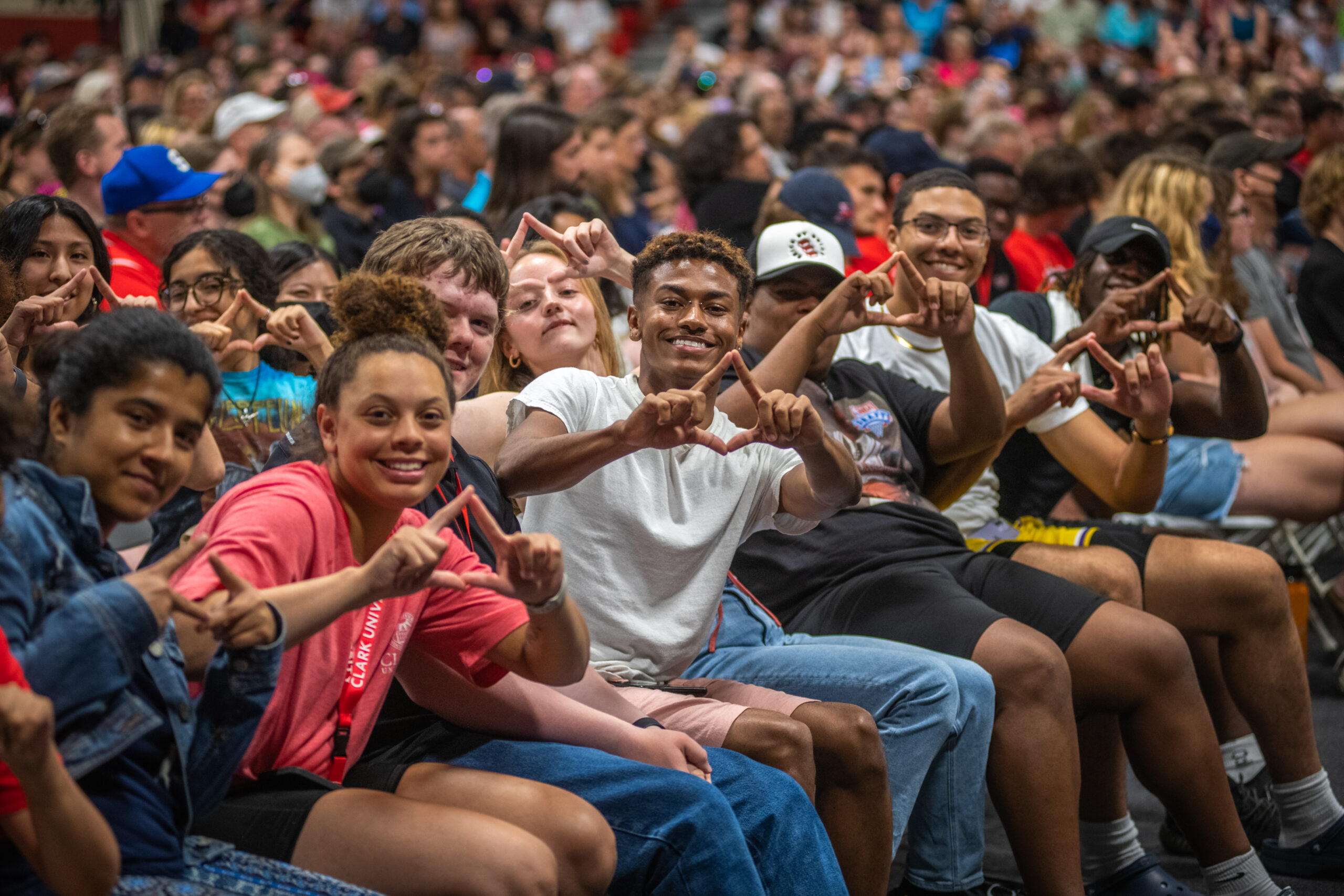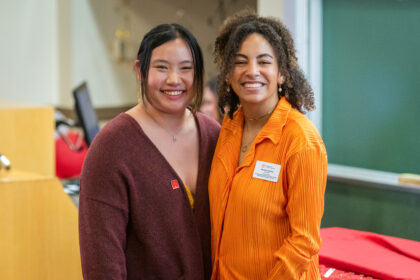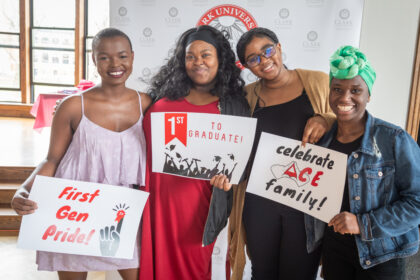Clark joins FirstGen Forward

 Clark is now a member of FirstGen Forward, an organization that partners with higher education institutions to help first-generation college students thrive. FirstGen Forward will assist the University in bolstering supports for first-gen students, says Naomi Ashley, assistant director of programming and first-generation student support in the Office of Identity, Student Engagement, and Access (ISEA).
Clark is now a member of FirstGen Forward, an organization that partners with higher education institutions to help first-generation college students thrive. FirstGen Forward will assist the University in bolstering supports for first-gen students, says Naomi Ashley, assistant director of programming and first-generation student support in the Office of Identity, Student Engagement, and Access (ISEA).
At Clark, a first-generation student is defined as someone whose parents or guardians did not complete a bachelor’s degree. Roughly 20 percent of Clark’s student population is first-generation, says Ashley.
“I think it’s everyone’s responsibility to support first-gen students in their identity and the intersectionality of their identities,” she says.
To become a FirstGen Forward network member, institutions must be committed to advancing first-gen student success. The network empowers institutions to transform the first-generation student experience, strengthen academic and co-curricular outcomes, and build more inclusive institutional structures. Clark joins more than 420 higher education institutions in the network, and membership gives faculty and staff opportunities to engage with peer institutions.
“Each year, more and more first-generation students are attending college. There are many barriers, whether financial, familial, or personal, such as feelings of guilt associated with leaving home,” says Ashley. “FirstGen Forward will help Clark actualize DEI initiatives and goals holistically.”
Network membership includes evidence-based and research-supported framework of actionable priorities supported through monthly workshops; diagnostic tools providing critical institutional insight; data sharing; coaching; and a yearly audit of programs and initiatives, which Ashley says will keep Clark on track with student supports. Clark will also get access to professional development opportunities like e-learning modules and the Network Member Learning Hub and can set goals and measure progress through an annual report process.


With the added resources through FirstGen, Ashley hopes to scale up activities and services and begin tracking the number of Clark graduate students who are the first in their families to pursue a degree. Clark currently recognizes its first-gen population with an affinity space, the First Gen Student Association, events during the academic year like alumni panels and resource workshops, First-Gen Week at the beginning of November, and the Advancing Clark Excellence (ACE) Summer Institute.
ACE is a pre-orientation program designed to buttress the first-gen experience. Incoming students can take a course, meet faculty members and staff, and acclimate to campus and Worcester. “This has been very helpful in retaining our first-generation students year to year,” Ashley says
Ashley would like to create a first-gen steering committee that would include first-gen students and faculty or staff. She’d also like to reach more Clarkies who identify as what she calls “1.5-gen” students. These students may have a parent or guardian who received a bachelor’s degree but are no longer connected with that parent or guardian, or have a parent or guardian who completed their degree abroad.
This work is personal to Ashley, the first person in her family to receive a four-year degree. On top of being a first-gen student, she was also an international student, leaving home in Canada to attend Bryant University in Rhode Island.
“I couldn’t turn to my parents, friends, or family members to get answers to questions,” she recalls. “It felt like a very lonely experience at times.
“I see myself in a lot of the students I work with regularly and I want to better their experience,” she says. “There’s always room for improvement and this will be a great tool.”
Institutions that complete the Network Member phase can progress to the second and third phases, FirstGen Forward Network Leader and FirstGen Forward Network Champion.


